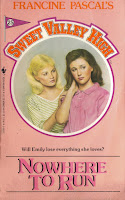I wrote this review for the Wheeler Centre when Liquid Nitrogen was shortlisted for the 2014 Victorian Premier's Awards. It's sort of old now, but it came back to me during a brief exchange with Charlotte Wood and I decided to place it here, for posterity, and because, as Charlotte said on my recommendation that she read Jennifer Maiden's work:
@eglantinescake I shall, thankyou. Poetry is the best at times like these. Xxx— Charlotte Wood (@charlottewoodau) November 14, 2016
Review of Liquid Nitrogen
Cross posted from The Wheeler Centre
This morning it was just me and my daughters at the kitchen table. They were filling in their lunch orders. The conversation turned to Julia Gillard, as it sometimes does. My daughters, like the rest of us genetically inclined to the Left, struggle to understand the unravelling narrative of politics of the last few years. For the first time, I showed them Gillard’s misogyny speech on YouTube. Then we watched Rudd’s apology to the Stolen Generation.
The immediacy and intimacy that technology has brought to politics reverberates in Jennifer Maiden’s astonishing collection, Liquid Nitrogen. The personal is political, but for Maiden the political is personal; she draws us into the lounge room of politics. Maiden unstrands the individuals from the state.
She returns to a motif she’s employed before, presumably inspired by Hillary Clinton’s confession that she ‘communes’ with Eleanor Roosevelt. She summons other political leaders and their ‘guiding spirits’ - Rudd and Dietrich Bonhoeffer, Gillard and Aneurin (Nye) Bevan, Bob Carr and Robert Byrd.
Basically, she conjures artefacts: Julia Gillard et. al, Maiden’s own fictional characters George Jeffreys and Claire Collins from a previous novel, her adult daughter Katharine, herself, Julian Assange, Florence Nightingale, liquid nitrogen, birds, dogs, the State Emergency Services Current Incidents site… The reader becomes an archaeologist, sifting out these artefacts and recognising the present for what it is: a series of objects, laden with meaning, and knitted together inside a giant web of information. I, for one, relished the project.
Maiden uses the term ‘weaving poem’, and I love this idea of form: a confluence of story, poetic imagery and current affairs, a sort of resting on the boundaries of consciousness, where the logic of story can tip over into the chaos of unfiltered information, so that the end product is not quite a verse novel, and is not quite not a verse novel.
This is poetry very much of its time, an organic, human approach to the world we live in, to the collective consciousness that is the internet, and the deeply individual, personal existence we each lead within this collective.
I have to say, from a purely fan-girlish point of view, my favourite poem is ‘Poor Petal’. I keep thrusting it at people and making them read it. I sit there while they do, part embarrassed, part proud, as if I made it myself. In it, Aneurin Bevan wakes up in Canberra, in Gillard’s lounge room, as she watches herself on the television. Here in the presence of her attending spirit, she is silent.
Her eyes searched his, but she had never yet
spoken with him, acknowledged his return.
He had expected speech but her sad eyes
as grey as baby sparrows emptily
flickered around the room…
…This woman did not converse, her flame
ate her within always. Always. Always
this woman haunted him.’
(Jennifer Maiden ‘Poor Petal’)
Here, to me, Maiden finds the true power of her recurring motif. As I grow older, I find the ambiguity of power in politics depressing. Gillard – in poetry – is a way of exploring the vulnerable body that exists in politics. Her femaleness – like Obama’s blackness – brings the body into play. With the body comes the vulnerabilities of the body, the limitations, sex, death, ambivalent power. ‘Poor Petal’ reverberates with the same resonance as Adrienne Rich’s poem about Marie Curie:
She died a famous woman denying
her wounds
denying
her wounds came from the same source as her power
(Adrienne Rich, ‘Power’)




